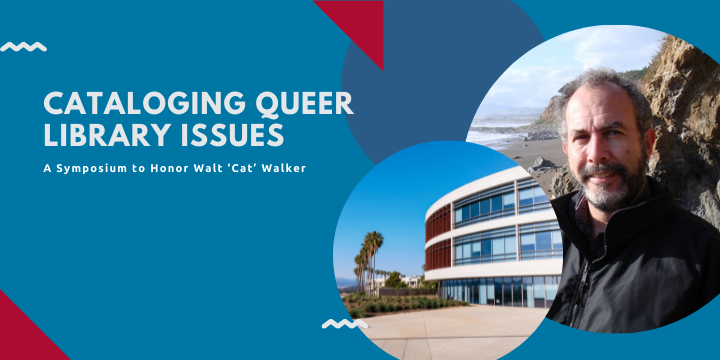Start Date
12-8-2021 12:50 PM
End Date
12-8-2021 1:25 PM
Description
Abstract
When Out On The Shelves, Vancouver’s independent, volunteer-run LGBT2QIA+ library, moved to a new space in 2017, its proximity to the University of British Columbia School of Information sparked a number of projects to revise and overhaul access and description of its materials. This lightning talk features two interrelated projects the speakers led as Master’s students in 2018—the creation of a new shelf classification system and the development of new subject cataloguing guidelines for materials. The work behind our classification system engages with the multiple and overlapping labels of identity and community for the library. Since a shelf order system provides one and only one location for each topic, we were challenged to find a way to make books on identity visible, accessible, and browsable without reasserting a siloed or fractured view of intersectional issues. Some of the features of the resulting classification system remove specificity found in the previous system, and reintroducing this specificity and discoverability was a key concern in the development of a thesaurus and new cataloguing rules. Given the unique context of Out On The Shelves, typical concerns such as interoperability with other library catalogues, scalability of new rules for large collections, and tensions with universal systems were largely irrelevant. With the freedom to create local systems that centered LGBT2QIA+ identities, communities, and information needs, we also attempted greater transparency in the collaborative process of design and preparation for the inevitability of re-design, the possibility that these new solutions should one day be revised or discarded. In this talk, we will discuss these new systems in relation to the previous systems at the library and among a constellation of other approaches we explored. These systems are expected to be perpetually in flux and we are eager to engage in discussion and questions on how they meet the goals of queer libraries.
Lightning Talk #3 (5 min): Reenvisioning Cataloging and Classification for a LGBT2QIA+ Community Library
Abstract
When Out On The Shelves, Vancouver’s independent, volunteer-run LGBT2QIA+ library, moved to a new space in 2017, its proximity to the University of British Columbia School of Information sparked a number of projects to revise and overhaul access and description of its materials. This lightning talk features two interrelated projects the speakers led as Master’s students in 2018—the creation of a new shelf classification system and the development of new subject cataloguing guidelines for materials. The work behind our classification system engages with the multiple and overlapping labels of identity and community for the library. Since a shelf order system provides one and only one location for each topic, we were challenged to find a way to make books on identity visible, accessible, and browsable without reasserting a siloed or fractured view of intersectional issues. Some of the features of the resulting classification system remove specificity found in the previous system, and reintroducing this specificity and discoverability was a key concern in the development of a thesaurus and new cataloguing rules. Given the unique context of Out On The Shelves, typical concerns such as interoperability with other library catalogues, scalability of new rules for large collections, and tensions with universal systems were largely irrelevant. With the freedom to create local systems that centered LGBT2QIA+ identities, communities, and information needs, we also attempted greater transparency in the collaborative process of design and preparation for the inevitability of re-design, the possibility that these new solutions should one day be revised or discarded. In this talk, we will discuss these new systems in relation to the previous systems at the library and among a constellation of other approaches we explored. These systems are expected to be perpetually in flux and we are eager to engage in discussion and questions on how they meet the goals of queer libraries.




